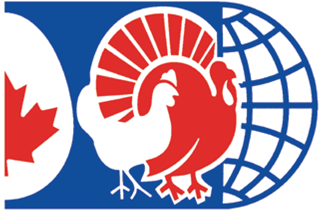


 Français
Français


For the PDF version, please click here.
About the Animal Care Program
Chicken Farmers of Canada effectively administers the only Animal Care Program that reaches all 2,800 chicken farms in Canada; no other program can achieve this reach.
This mandatory, enforced, and third-party-audited program has a credible, science-based foundation. It is based on the Code of Practice developed by the National Farm Animal Care Council (NFACC). NFACC is a world leader in bringing together stakeholders with different perspectives – farmers, veterinarians, processors, transporters, animal welfare associations, researchers, and provincial/federal governments – to develop robust and sound Codes of Practice.
NFACC’s Code Development process involves a full scientific review which is used to draft the Code that then undergoes a public consultation process. In this way, all Canadians have an opportunity to contribute to the final Code. The NFACC process is a standard that is internationally recognized and applauded.
Chicken Farmers of Canada’s Animal Care Program is verified through a comprehensive third-party audit by NSF International, an internationally-recognized, third-party certification body, accredited by the American National Standards Institute to ISO 17065.
Recent Vegan Activist Activity
The commitment of Canadian chicken partners to animal welfare recently became the target of a campaign, specifically against restaurant and retail companies to pressure them through extortion of their brands into mandating changes to our practices.
While claiming to be advocating change for the betterment of industry practices, one such vegan activist group has publicly stated that it is “unabashedly a vegan organization.” (National Post, Mercy for Animals: Activists making a difference — or radicals distorting the truth? – July 20, 2017). The objective seems to be to make it more difficult, more frustrating and more expensive for chicken farmers to do their jobs and ultimately, make it too expensive for consumers.
Canadians are starting to ask whether organizations like these are really seeking science-based evolution in the best interests of animal welfare, or just trying to destroy the livelihoods of Canada’s farmers, and dictate what Canadians can and can’t eat.
Slower-Growing Chickens – Are they really better?
Take so-called “slower-growing” chickens, for example. While vegan activist organizations claim that growing a different breed of chicken more slowly will result in improved welfare, there is very little evidence to support this.
Farmers, processors, further processors, restaurants and retailers work together to ensure that Canada has the chicken to meet consumer expectations.
Despite claims being made to the contrary, no one company (or group of companies) can dictate to the rest of industry what breeds will be used or how chickens will be raised.
The vast majority of restaurants and retailers purchase chickens from farmers who raise two major breeds. The poultry breeding companies that serve the Canadian market use the process of genetic selection to carefully select for desirable traits in chickens. This is the same process that gives us Great Danes and Chihuahuas – it is not genetic modification.
Breeding companies measure factors related to animal wellbeing, such as leg and heart health, as well as for efficient growth.
The reality: Chickens today are, in fact, bigger and do grow faster than they used to.
Thanks to current breeding programs:
Selection for good health and welfare traits is a key component of the breeding programs as breeds are continuously improved. Indeed, these already make up over half the traits that breeding companies measure and that emphasis will continue to address welfare challenges as they arise. These breeding programs are based on extensive research.
Slower-Growing Chicken – Not better for the environment
So while research continues to examine the welfare implications of slower growing birds, we do know that switching to a slower growing bird could have serious implications for sustainability and the environment.
In the United States, research indicates that, even if only 1/3 of the farmers switched to a slower-growing bird:
Research – Proving what’s best for the birds in our care
There is a lot of research happening right now regarding animal welfare and the raising of chickens in Canada. Just as one would seek out experts before making major life decisions, partners in the Canadian chicken industry will seek out the expertise, confirm the science and examine all sides of the issues surrounding the birds in our care. To do that properly, multiple studies are required to fully assess the whole impact of changes being proposed.
That’s one reason we support research in innovation in chicken production in Canada, and in particular, within animal care.
The Canadian Poultry Research Council (CPRC) is an organization that coordinates research and development programs that address current and future industry needs, providing invaluable information that promotes innovation in Canadian poultry farming.
CPRC’s research funding has focused on creating solutions for poultry infectious diseases, as well as developing animal welfare and environmental stewardship. This research, combined with other CPRC programs, has helped further knowledge in poultry health and welfare, as well as food safety, genetics, and environmental care. In fact, over 20 projects specific to animal welfare have been funded to date.
There are currently some very important studies being conducted regarding slow-growing birds. We look forward to seeing the results from all these research projects and will continue to work with our industry stakeholders to implement production practices based on the best available science.
You have a choice
We all buy food for our own reasons – cost, value, nutrition, convenience, etc., and we are grateful to Canadian consumers for making chicken Canada’s number one meat. We have a great deal of choice in the chicken we buy. Whether you choose organic, free-range, vegetarian-grain-fed, specialty breed or conventional chicken – you have a choice in what you buy and Canadian chicken farmers and processors work hard to meet consumer preferences.
The point is, we’re always ready to adapt to the changing Canadian palate – but we’re not willing to do it when it’s being driven by vegan activists who ultimately want to tell Canadians what to eat and to force our farmers out of business.

Chicken Farmers of Canada
www.chickenfarmers.ca | Twitter: @theinsidecoop
Canadian Poultry & Egg Processors Council
www.cpepc.ca